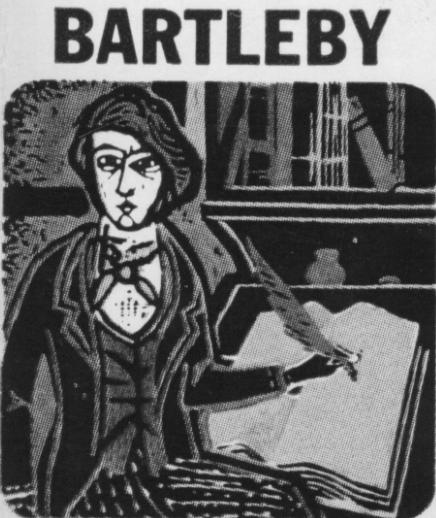I’m travelling to see my wife’s family in Iowa so I leave you with this nice little article on Herman Melville’s “Bartleby the Scrivener: A Tale of Wall Street” as it applies to the Occupy Wall Street movement. Although author Austin Allen notes that a number of the protesters have found inspiration in Bartleby’s passive resistance to his stultifying job and quote his words “I prefer not to,” the story works as an ironic commentary on the movement’s reluctance to take up anything other than vague slogans:
“Bartleby” could also end up being a cautionary allegory about rebellion without a clearly defined cause. Though OWS has involved itself in concrete smaller-scale issues such as labor disputes, the nature of its larger demands remains open to question, even within its own ranks. The Arab Spring, which it claims as a model, sought the overthrow of particular dictators; by contrast, “We will no longer tolerate the greed and corruption of the 1%” is a slogan nearly as vague as “I would prefer not to.” If, like poor Bartleby, OWS can never fully articulate what it wants—only what it rejects—it, too, will waste away.
Ironies aside, “Bartleby” does at least offer a lesson in how unnerving sheer recalcitrance can be, especially to people in power. Melville’s scrivener doesn’t budge until he’s absolutely, physically forced to; having weathered the recent Northeast blizzard, the Zuccotti Park crowd have proved themselves worthy of the comparison. Anyway, if the movement wants to invoke a Melvillean parable of persistence, better “Bartleby” than Moby-Dick.
Allen has a point–I believe that Occupy Wall Street, unlike Bartleby, should now turn its attention to political action. But to give OWS credit, it has focused the nation’s attention on income inequality like nothing else in decades.



One Trackback
[…] series) who refuses to care, even when a lion is about to eat him: Sendak’s Pierre is Bartleby the Scrivener, who “would prefer not to.” Yes, kids have their Bartleby/Pierre moments just like the […]